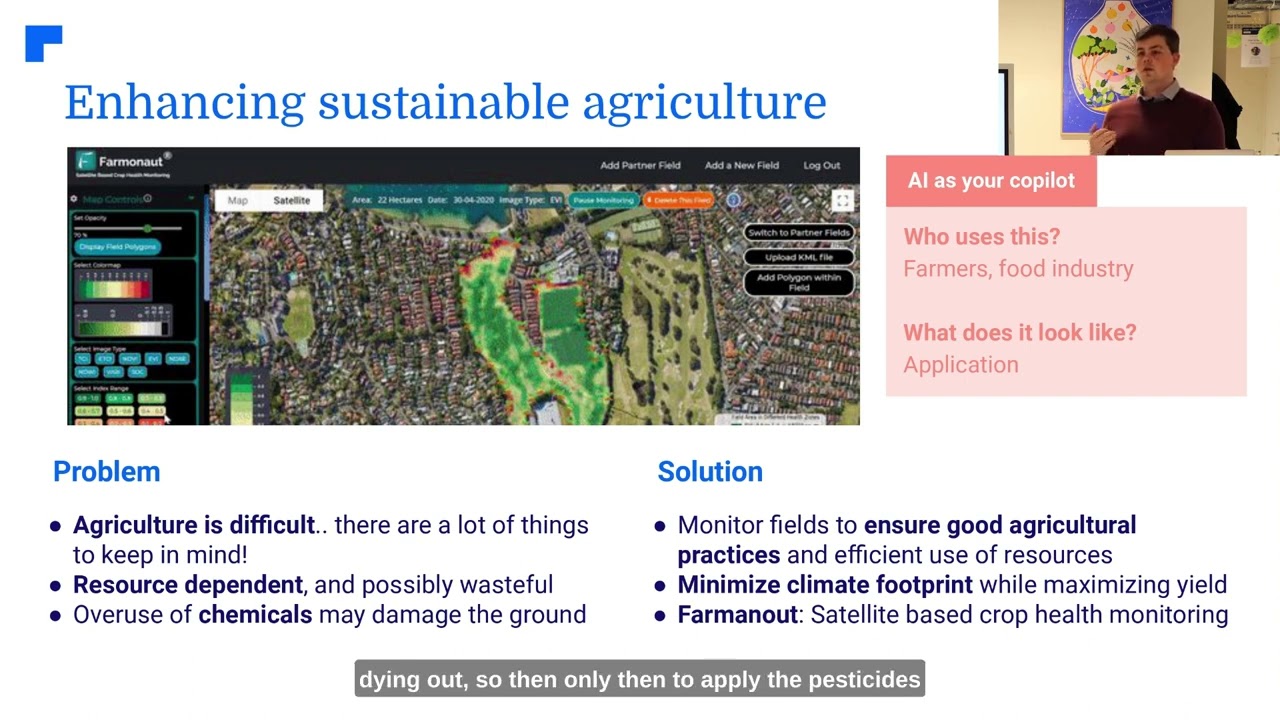Global Tech Supply Chains Shift: Tariff Impact on AI, Manufacturing, and Trade in India, Vietnam, and China
“Proposed U.S. tariffs on Vietnam and India could impact over $500 billion worth of global tech supply chains.”
In the ever-evolving landscape of international trade, we find ourselves at a critical juncture where tariffs are reshaping the global manufacturing and technology sectors. As the United States considers imposing significant tariffs on countries like Vietnam and India, major tech companies are facing potential disruptions to their supply chains and production strategies. This blog explores the far-reaching implications of these tariffs on artificial intelligence data centers, smartphone production, and agricultural exports.
The Shifting Sands of Global Tech Supply Chains
The international trade landscape is undergoing a dramatic transformation, with new tariffs poised to redraw the map of global manufacturing and technology sectors. As we delve into this complex issue, it’s crucial to understand the historical context and the current state of affairs.
In 2018, when President Donald Trump first pushed tariffs on China, tech giants like Apple began diversifying their production bases. This strategic move saw more iPads and AirPods being manufactured in Vietnam, while iPhone production shifted towards India. However, with the potential return of Trump to the White House, this diversification strategy may have backfired for the world’s most valuable publicly traded company.

The recent announcement of potential tariffs of 46% on Vietnam and 26% on India has sent shockwaves through the tech industry. While the White House has stated that these tariffs are effective immediately, some trade experts consider them to be preliminary and designed as a starting point for negotiations to reduce overseas tariffs.
The Apple Conundrum: A Case Study in Tariff Impact
Apple, as the most prominent tech company affected by these tariffs, serves as an excellent case study to understand the broader implications for the tech industry. The company is already grappling with 20% tariffs on products imported from China, where it manufactures about 90% of the iPhones sold worldwide. Under the new tariff plan, this rate could increase to 34%.
The potential costs of these “reciprocal tariffs,” as Trump calls them, could put Apple’s business in a precarious position. iPhones, iPads, and Apple Watches contribute to three-quarters of the company’s nearly $400 billion in annual revenue. With no exemptions from tariffs, Apple faces a difficult choice: absorb the additional costs and reduce profits or pass them on to customers through price increases.
According to Morgan Stanley, the tariffs on iPhones and other devices imported from China could increase Apple’s annual costs by $8.5 billion without any relief from the administration. This would translate to a reduction in the company’s profit next year by $0.52 per share, or about $7.85 billion – a significant 7% hit on next year’s profits.
The Broader Impact on Tech Manufacturing
While Apple’s situation is particularly stark, most other tech companies will also feel the impact of these tariffs, either directly or indirectly. Companies like Google and Microsoft, while not as heavily dependent on international suppliers, do have notable consumer electronics businesses that could be affected.
Moreover, the tariffs could increase the cost of building the massive, new data centers these companies are planning to construct for new artificial intelligence technology. This could potentially slow down the development and deployment of AI systems, affecting not just the tech giants but also the broader ecosystem of startups and businesses that rely on these advanced technologies.
In the agricultural sector, these tariffs could have significant implications. For instance, Farmonaut’s crop plantation and forest advisory services could become even more crucial as farmers and agribusinesses navigate the changing trade landscape. These services provide valuable insights into crop health and market trends, helping agricultural producers make informed decisions in an increasingly complex global market.
The Geopolitical Chessboard: India, Vietnam, and China
The new levies are part of Trump’s efforts to reshape world trade by imposing tariffs on every country that imposes fees on American exports. U.S. trade officials estimate that India has a tariff rate of 13.5% on U.S. goods, with a 39% tariff on agricultural products. Vietnam, on the other hand, has a tariff rate of 8.1% on U.S. goods, with a 17.1% tariff on agricultural products.
“Tariff-induced supply chain shifts may affect production of 1 billion+ smartphones annually across India, Vietnam, and China.”
This geopolitical maneuvering has significant implications for the tech manufacturing landscape. Vietnam, which became a destination for Apple and others after COVID-19 shut down factories in China in 2020, accounted for more than 10% of the top 200 suppliers that Apple had in 2023. India, meanwhile, has been an attractive location for iPhone production due to its status as the world’s second-largest smartphone market.
The Challenges of Reshoring: A U.S. Perspective
While the tariffs aim to bring manufacturing back to the United States, the reality is more complex. Apple’s experience with U.S. production illustrates some of the challenges. The company’s Texas plant that made Macs faced issues such as worker retention and difficulty finding suppliers for specialized components.
Tim Cook, Apple’s CEO, has stated that the United States doesn’t have enough skilled manufacturing workers to compete with China. He noted that while a meeting of tooling engineers in the U.S. might not fill a room, in China, such a gathering could fill multiple football fields.

The Role of Technology in Navigating Trade Complexities
As global supply chains reconfigure, technology plays a crucial role in helping businesses adapt. For instance, Farmonaut’s blockchain-based traceability solutions can help companies ensure transparency and compliance in their supply chains, which becomes even more critical in a complex trade environment.
Similarly, Farmonaut’s carbon footprinting tools can assist businesses in monitoring and reducing their environmental impact, an increasingly important factor in international trade negotiations and regulations.
The Impact on Consumer Prices and Economic Growth
The ripple effects of these tariffs extend beyond the tech industry. Consumer prices for electronics and other goods may increase as companies pass on the additional costs. This could potentially dampen consumer spending and economic growth, not just in the United States but globally.
Moreover, the uncertainty created by shifting trade policies can lead to decreased business investment, as companies hesitate to make long-term commitments in an unpredictable environment.
The Future of Electronics Manufacturing
As global supply chains reconfigure, the future of electronics manufacturing remains uncertain. Companies are likely to continue diversifying their production bases to mitigate risks. This could lead to the emergence of new manufacturing hubs and the decline of others.
Advanced technologies like artificial intelligence and automation may play an increasingly important role in manufacturing, potentially reducing the impact of labor cost differentials between countries. This shift could fundamentally alter the calculus of where to locate production facilities.
Tariff Impact Comparison across Countries
| Sector/Metric | India | Vietnam | China |
|---|---|---|---|
| Estimated Tariff Rate (%) | 26 | 46 | 34 |
| AI Data Center Growth (% change) | -15 | -20 | -10 |
| Smartphone Production (units in millions) | 200 | 150 | 800 |
| Agricultural Exports ($ billions) | 35 | 25 | 70 |
| Manufacturing Job Impact (thousands) | -500 | -700 | -1000 |
| Tech Company Relocation Likelihood | High | Medium | Low |
The Role of AI in Navigating Trade Complexities
As the global trade landscape becomes increasingly complex, artificial intelligence is emerging as a crucial tool for businesses to navigate these challenges. AI-powered analytics can help companies optimize their supply chains, predict market trends, and make more informed decisions about where to locate production facilities.
For instance, Farmonaut’s large-scale farm management solutions leverage AI to provide real-time insights into crop health and market conditions. This technology can be particularly valuable for agricultural producers dealing with the uncertainties of international trade.
The Intersection of Technology, Finance, and International Trade
As global supply chains reconfigure, we’re witnessing a fascinating intersection of technology, finance, and international trade. The decisions made by tech giants like Apple have ripple effects that extend far beyond their immediate industry, influencing everything from currency exchange rates to international diplomacy.
Financial institutions are also playing a crucial role in this shifting landscape. For example, Farmonaut’s crop loan and insurance services can help farmers and agribusinesses manage financial risks associated with trade uncertainties. These services use satellite data and AI to provide accurate crop assessments, enabling more efficient and reliable financial products for the agricultural sector.
The Path Forward: Adaptation and Innovation
As we navigate this complex and evolving trade landscape, adaptation and innovation will be key. Companies will need to be agile, ready to pivot their strategies in response to changing tariffs and trade policies. They’ll also need to invest in technologies that can help them optimize their operations and stay competitive in a global market.
For instance, Farmonaut’s fleet management solutions can help businesses optimize their logistics operations, a crucial factor in managing costs and maintaining efficiency in a changing trade environment.
Conclusion: Navigating the New Normal in Global Trade
As we’ve explored in this blog post, the impact of new tariffs on global tech supply chains is far-reaching and complex. From the challenges faced by tech giants like Apple to the opportunities for innovation in agricultural technology, these changes are reshaping the landscape of international trade and manufacturing.
While the future remains uncertain, one thing is clear: businesses that can adapt quickly, leverage technology effectively, and navigate the complexities of international trade will be best positioned to thrive in this new normal. As we move forward, it will be crucial to stay informed, remain flexible, and continue to innovate in the face of changing global dynamics.
FAQ Section
- How will the new tariffs affect consumer prices for tech products?
Consumer prices for tech products are likely to increase as companies pass on the additional costs of tariffs to customers. The exact impact will vary depending on the product and the company’s pricing strategy. - Will these tariffs bring manufacturing jobs back to the United States?
While the tariffs aim to encourage domestic manufacturing, the reality is complex. Skilled labor shortages and established supply chains abroad present challenges to large-scale reshoring of manufacturing jobs. - How are tech companies responding to these tariff changes?
Many tech companies are diversifying their supply chains, exploring new manufacturing locations, and investing in automation and AI to mitigate the impact of tariffs. - What role does AI play in managing these trade challenges?
AI is increasingly used for supply chain optimization, market trend prediction, and decision-making in complex trade environments. It helps companies adapt more quickly to changing conditions. - How might these tariffs affect international relations?
The imposition of new tariffs could strain international relations, potentially leading to retaliatory measures and impacting global economic cooperation.
Earn With Farmonaut: Affiliate Program
Earn 20% recurring commission with Farmonaut’s affiliate program by sharing your promo code and helping farmers save 10%. Onboard 10 Elite farmers monthly to earn a minimum of $148,000 annually—start now and grow your income!
Farmonaut Subscriptions
For developers interested in integrating Farmonaut’s powerful satellite and weather data into their own applications, check out our API and API Developer Docs.




















